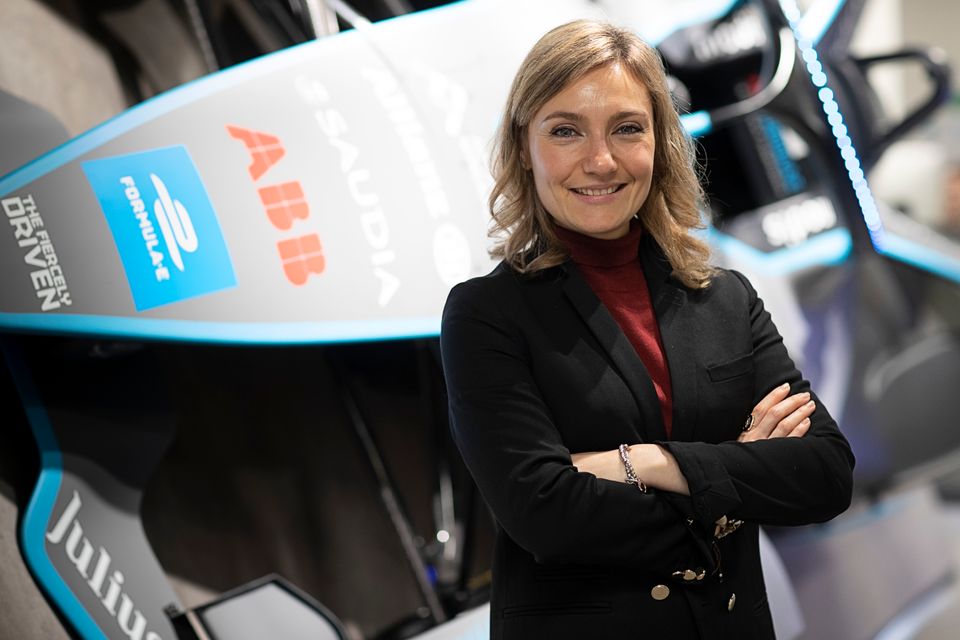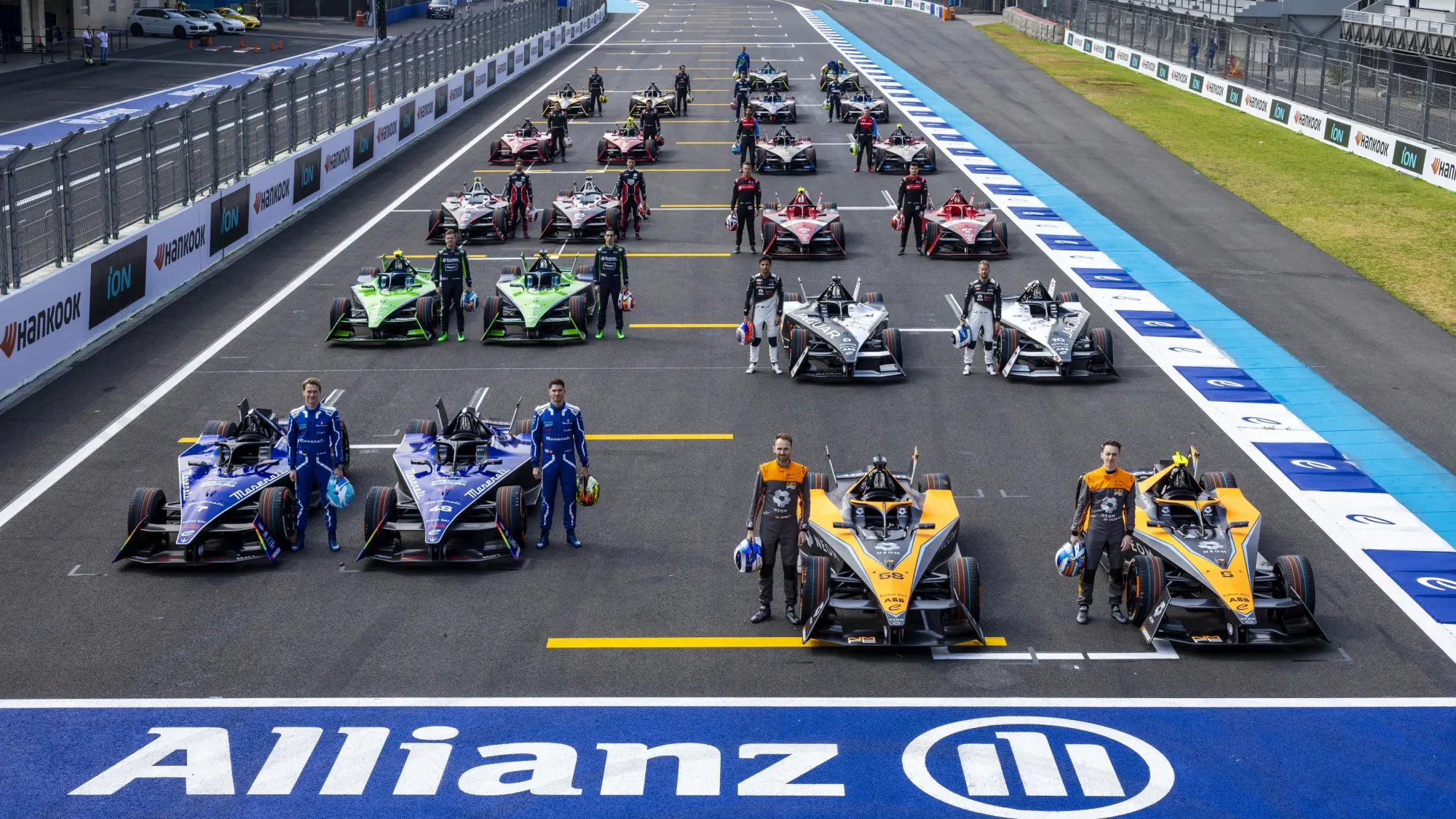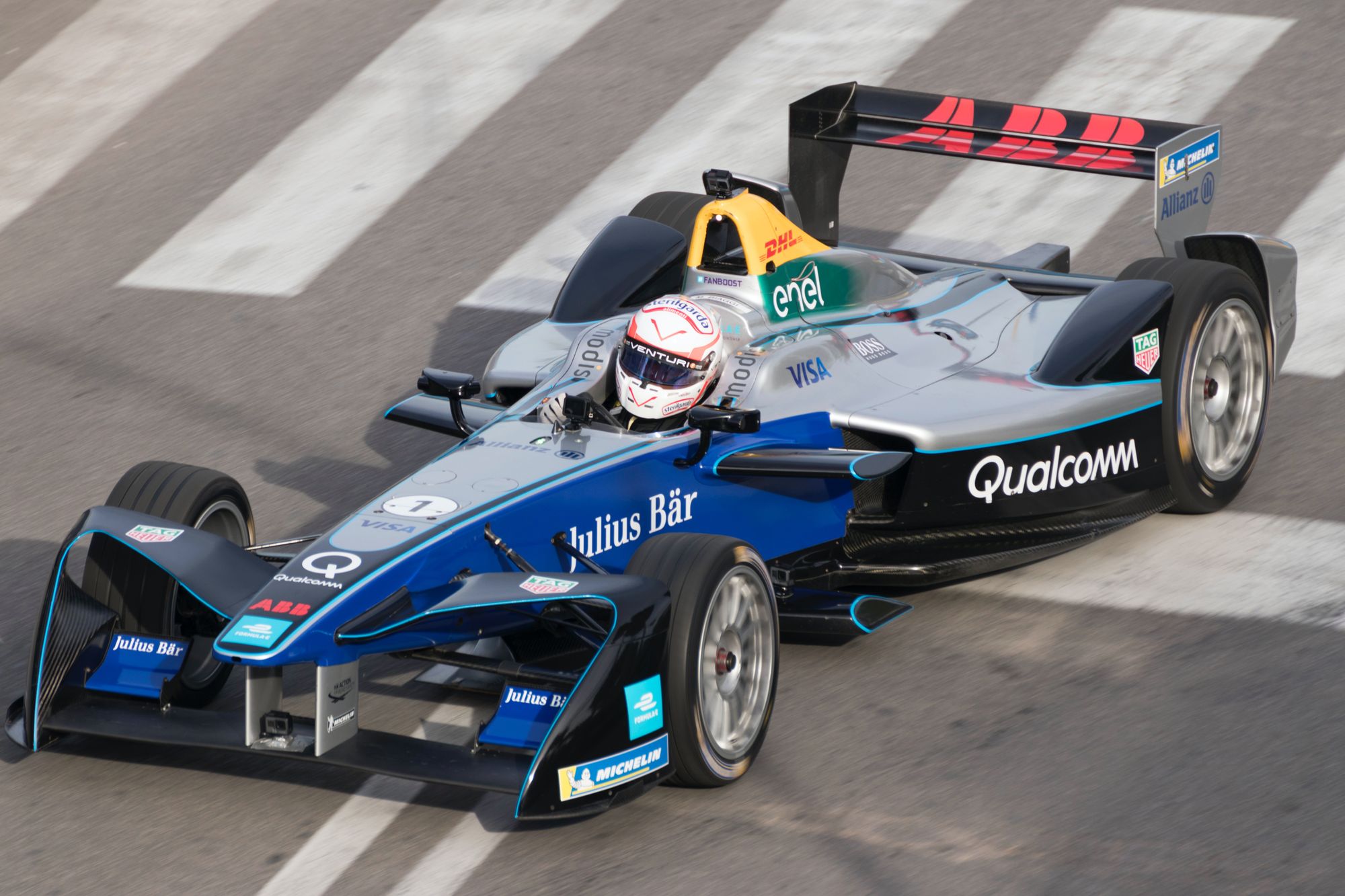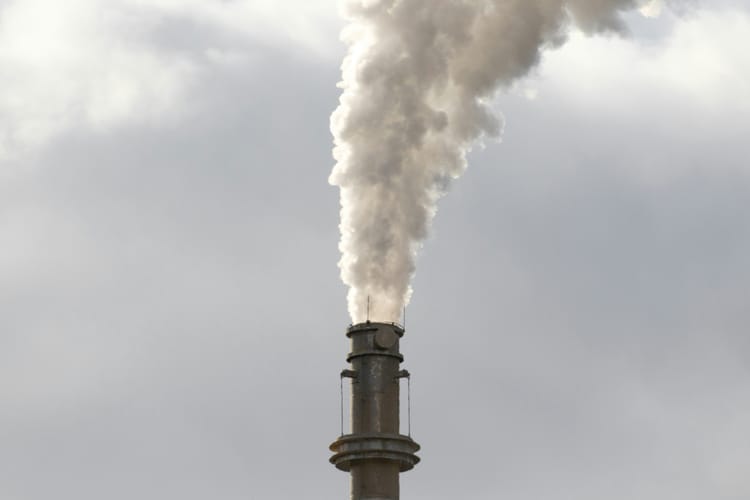Formula E’s sustainability boss sees it as a sandbox for innovation

Julia Pallé wants electric motorsport championship Formula E to be a sandbox for large players to innovate at a “relatively small scale” before rolling out sustainable solutions to a broader audience – and she says that it’s already happening.
Formula E promotes itself as “electric entertainment at 200 miles per hour”: as the first championship for electric race cars, it aims to act as a “competitive platform to test and develop the latest in electric technology.”
Being VP of Sustainability at an organisation centred around rethinking a traditionally combustion engine and fossil fuels-centric sport is probably easier than being Chief Sustainability Officer in a company built on hydrocarbons.
At the very least, Pallé doesn’t need to convince anyone of the need to do things sustainably and her role reflects that: she reports directly to the CEO, manages a team of five and has “a couple of millions” of budget to conduct her duties.
But every business has a broader impact, and she is determined to make Formula E’s a positive one. “My job is to make the purpose, the wider vision and mission of the company a reality that comes true on the day to day, from the most strategic views to the most granular details,” she explains to CSO Futures.
Pallé says that her remit involves working towards four primary objectives: ensuring the next generation of Formula E race cars remain at the forefront of sustainability standards, reducing the environmental impact of championship events (it was the first motorsport racing series to achieve ISO 2201 certification for sustainable events), generating a positive impact on host communities, and advancing gender equality in the very “male-dominated world” of motorsports.
Formula E: Racing towards net zero

While its website says it is “net zero since inception”, Pallé clarifies that this was achieved in 2020 before the Science-Based Targets Initiative released its net zero standard, so the term was aligned with the UN’s Race to Zero definition (and relied on more offsets than permitted by the SBTi). Now, Formula E is working to realign its strategy with the SBTi standard and under this definition, net zero is “not yet achieved,” Pallé admits, proving that even within sustainability-driven companies, heads of sustainability can struggle with fast-changing standards.
Electric though it may be, Season 8 of the championship was responsible for 33,800 tonnes of emissions, with almost three quarter of this footprint coming from the freighting of cars and equipment to the 10 cities races took place in.
To reduce that, Formula E has a partnership with DHL, the company handling all of its logistics needs. Pallé explains that DHL represents most of its (Scope 3) footprint, while Formula E belongs to Scope 1 and 2 for DHL, though at a “relatively small” scale considering DHL’s global operations – the partnership “gives us the opportunity to test solutions that DHL can then decide to scale up and replicate for their clients” she says, “so it's really a mutual benefit that we're trying to implement when focusing on innovative and sustainable technologies.”
What does she mean?
Among the solutions the two are exploring are biofuels for shipping and sustainable aviation fuels, but logistics efficiencies that have helped Formula E cut freight emissions by 23% between Seasons 5 and 8 of the championship.
The team has worked to localise race materials to reduce freight distances and allow for ocean shipping. “To simplify, you will have a set of materials that travel all across the Americas, you will have a another set of materials that travel in between Europe and the Middle East, and another that travel, let's say throughout Asia,” Pallé explains, adding that this was a recommendation made by DHL.
Supporting the adoption of electric vehicles globally

Electric equipment manufacturer ABB has been a primary commercial partner since 2018. Formula E is also supported by Allianz, Bosch, DHL and Chilean miner Antofagasta. Its latest season was watched live by a record 225 million viewers, though Pallé notes that its fans are quite different from those following Formula 1.
“They're probably all sports enthusiasts, but you have only a portion that is really into motorsport people. The rest are either tech-focused, curious about the technology around electric vehicles, or families focused on climate change. And you also have an interesting segment that is quite female-dominated and quite young, under 30. And those very much care about the potential social impact that the championship can create: they are inspired by our social mission,” she says.
Aside from “doubling down” on its gender equality pillar, Pallé believes Formula E can play a crucial role in supporting the electrification of motorsports – and mobility in general: “We use the championship as a technological platform for EV manufacturers to learn and develop the technology, mostly around software, and transfer that back into the consumer vehicles that you and I are driving today.”
Her favourite example is Jaguar, which introduced a software update that improved battery life by 8% in its I-Pace SUVs – and that came directly from their learnings in Formula E races: “Not a small thing in the end,” says Pallé proudly.
She also views the championship as “a fantastic marketing platform to change perceptions around electric vehicles,” by proving use cases around speed and battery range. This is partly why most races take place on city streets, increasing visibility.
Pallé also works with the rest of the motorsport industry to encourage the implementation of more sustainable practices, and she feels strongly that heads of sustainability in all sectors should share challenges, as opposed to successes.
“If you’ve succeeded, it's nice. But if you share a challenge, maybe collectively, it's easier to solve the problem than on your own. So, it's a key part of the mission of the championship to make sure that we work closely and collaboratively with the entire sector.”







Member discussion